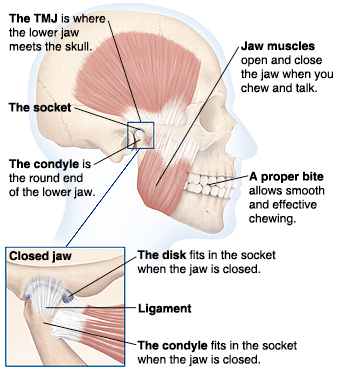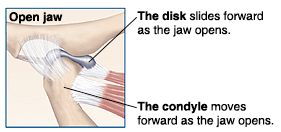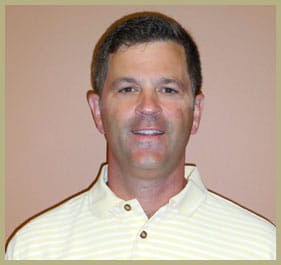The temporomandibular joint (TMJ) is a ball-and-socket joint located where the upper and lower jaws meet. The TMJ and its nearby muscles make up a complex, loosely connected system. Because of this, a problem in one part of the system can affect the other parts. This can cause you to have temporomandibular disorder (TMD).
How the Temporomandibular Joint Works
You have one joint on each side of your mouth that together make up the TMJ. These joints are part of a large group of muscles, ligaments, and bones that work together as a system. When the system is healthy, you can talk, chew, and even yawn in comfort. Muscles contract and relax to open and close the joint. The disk absorbs pressure in the joint. It also allows the jaws to open and close smoothly. Ligaments connect the jaw bones to the skull. They also support the joint.
Common Temporomandibular Problems
When there is a problem with the TMJ and its related system, you can develop TMD. Common TMD problems include tight muscles, inflamed joints, and damaged joints.














